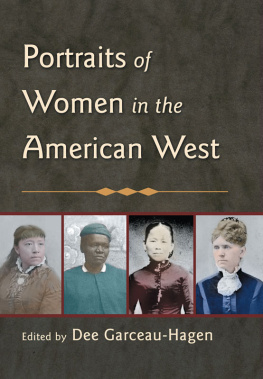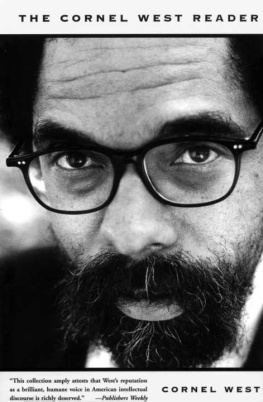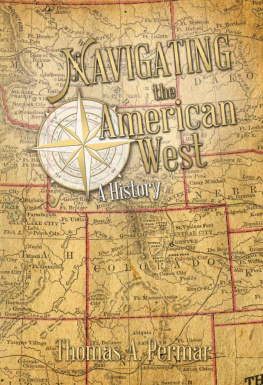The Human Tradition in America
CHARLES W. CALHOUN
Series Editor
Department of History, East Carolina University
The nineteenth-century English author Thomas Carlyle once remarked that the history of the world is but the biography of great men. This approach to the study of the human past had existed for centuries before Carlyle wrote, and it continued to hold sway among many scholars well into the twentieth century. In more recent times, however, historians have recognized and examined the impact of large, seemingly impersonal forces in the evolution of human historysocial and economic developments such as industrialization and urbanization as well as political movements such as nationalism, militarism, and socialism. Yet even as modern scholars seek to explain these wider currents, they have come more and more to realize that such phenomena represent the composite result of countless actions and decisions by untold numbers of individual actors. On another occasion, Carlyle said that history is the essence of innumerable biographies. In this conception of the past, Carlyle came closer to modern notions that see the lives of all kinds of people, high and low, powerful and weak, known and unknown, as part of the mosaic of human history, each contributing in a large or small way to the unfolding of the human tradition.
This latter idea forms the foundation for this series of books on the human tradition in America. Each volume is devoted to a particular period or topic in American history and each consists of minibiographies of persons whose lives shed light on that period or topic. Well-known figures are not altogether absent, but more often the chapters explore a variety of individuals who may be less conspicuous but whose stories, nonetheless, offer us a window on some aspect of the nations past.
By bringing the study of history down to the level of the individual, these sketches reveal not only the diversity of the American people and the complexity of their interaction but also some of the commonalities of sentiment and experience that Americans have shared in the evolution of their culture. Our hope is that these explorations of the lives of real people will give readers a deeper understanding of the human tradition in America.
Volumes in the Human Tradition in America series:
Ian K. Steele and Nancy L. Rhoden, eds., The Human Tradition in Colonial America (1999). Cloth ISBN 0-8420-2697-5 Paper ISBN 0-8420-2700-9
Nancy L. Rhoden and Ian K. Steele, eds., The Human Tradition in the American Revolution (2000). Cloth ISBN 0-8420-2747-5 Paper ISBN 08420-2748-3
Ballard C. Campbell, ed., The Human Tradition in the Gilded Age and Progressive Era (2000). Cloth ISBN 0-8420-2734-3 Paper ISBN 0-8420-2735-1
Steven E. Woodworth, ed., The Human Tradition in the Civil War and Reconstruction (2000). Cloth ISBN 0-8420-2726-2 Paper ISBN 0-8420-2727-0
David L. Anderson, ed., The Human Tradition in the Vietnam Era (2000). Cloth ISBN 0-8420-2762-9 Paper ISBN 0-8420-2763-7
Kriste Lindenmeyer, ed., Ordinary Women, Extraordinary Lives: Women in American History (2000). Cloth ISBN 0-8420-2752-1 Paper ISBN 0-8420-2754-8
Michael A. Morrison, ed., The Human Tradition in Antebellum America (2000). Cloth ISBN 0-8420-2834-X Paper ISBN 0-8420-2835-8
Malcolm Muir Jr., ed., The Human Tradition in the World War II Era (2001). Cloth ISBN 0-8420-2785-8 Paper ISBN 0-8420-2786-6
Ty Cashion and Jess F. de la Teja, eds., The Human Tradition in Texas (2001). Cloth ISBN 0-8420-2905-2 Paper ISBN 0-8420-2906-0
Benson Tong and Regan A. Lutz, eds., The Human Tradition in the American West (2002). Cloth ISBN 0-8420-2860-9 Paper ISBN 0-8420-2861-7
Charles W. Calhoun, ed., The Human Tradition in America from the Colonial Era through Reconstruction (2002). Cloth ISBN 0-84205030-2 Paper ISBN 0-8420-5031-0
For our mentor and friend,
Gerald Thompson (19471998),
who taught us the significance of the U.S. West
About the Editors
BENSON TONG, assistant professor of history at Wichita State University, Wichita, Kansas, is a scholar of U.S. immigration history and ethnicity. His published works include Unsubmissive Women: Chinese Prostitutes in Nineteenth-Century San Francisco (1994), Susan La Flesche Picotte, M.D.: Omaha Reformer and Tribal Leader (1999), The Chinese Americans (2000), and several journal articles related to American Indian history.
REGAN A. LUTZ, associate professor of history at Greensboro College, Greensboro, North Carolina, specializes in nineteenth-century U.S. history. Her award-winning teaching extends beyond her specialty field and encompasses Native American history, U.S. womens history, North Carolina history, U.S. foreign policy, and Latin American history. Professor Lutz has written book reviews and presented conference papers on various topics.
Introduction
The American West in Its Many Incarnations
Benson Tong and Regan A. Lutz
A n old Japanese immigrant poem begins with the following lines: Chasing them in dreams, / Mountains and rivers of home.1 Evoking memories of origins, the poem echoes the aspirations of newcomers to the American West, both past and present. Migrating westwardor eastward for those from Asia or northward for those from Central and South Americato that place has been a story of fanciful desires, alluring promises, and human foibles. But it has also been one of developing new ties while nurturing old roots. A story of departures, a narrative of arrivalsthis is the imaginable and contestable West.
Peopled by many ethnic groups, the historical West, the crossroads of multiple cultures, shaped a continent and forged a nation, and for the actors, it was the stage on which their lives were reshaped. From the meandering, humid Mississippi to the sunny, kitschy Hawaiian Islands, from the riotous colors of the Tejano culture in arid Texas to the gurgling oil rushes in frigid Alaska, and from the expansiveness of the grassy ancient Great Plains to the soaring majesty of the Continental Divide, there have been many Wests. Covering nineteen U.S. states and encompassing five time zones, the region in its many incarnations boasts of varying landscapes and climates, racial and ethnic diversity, many economies, and multiple regional histories. The numerous subregions are topographically, economically, and socially different from one another. Yet what unifies them and what sets them apart from the rest of the republic is obvious: diversity.2 Unlike the East, with its seemingly deterministic Puritan heritage, and the South, saddled by the burden of slavery, the U.S. West defies a monocausal explanation for its development. Such is the contemporary, New Western image of the region and its cast of thousands. Since its emergence in the early 1980s, New Western history has broken a fresh trail for the study of this region. Inclusive, non-Eurocentric, and pointedly pessimistic about the past, New Western works seem a marked contrast to the well-known Turnerian literature, which is, in part, intellectually rooted in the almost oratorical prose of Frederick Jackson Turner.
In July 1893 a young Turner, then a historian at the University of Wisconsin, presented a turgid paper at a professional meeting. On that sweltering late afternoon, he addressed a disinterested audience of his peers in the heart and soul of his beloved Midwest, Chicago. In what would become perhaps the seminal essay about U.S. history, Turner claimed that the American national identityunique and unwedded to European rootswas primarily the outcome of shifting frontiers advancing westward across the continent over time.3 Building on the democratic ideals of Thomas Jefferson and Andrew Jackson and invoking the triumphalist tone of Manifest Destiny, Turner declared in a larger work that American democracy... came out of the American forest, and it gained new strength each time Euramerican civilization encountered savagery.4 The rigors of the frontier experience turned settlers into rugged defenders of democracy and freedom, possessing minds at once idealistic and practical. Such ideal qualities, however, hinged on the availability of free or abundant land, a notion Turner fashioned from the English radical seventeenth-century faith that political independence hinged on landed proprietorship. Yet the end of the frontier in 1890, as proclaimed by the Bureau of Census, seemed to suggest that a descent into social chaos would soon ensue. The disappearance of the frontierdefined as land with a population density of two or fewer persons per square milemeant that the West could no longer serve as a safety valve to ease the pressure of industrial forces and open opportunities. Neither immigration restrictions nor further territorial expansion could offset the loss of the American frontier. Scholars and the literate audience of that period found much to approve and little to reject in Turners work. Writing at the end of one age and the dawn of anothera time when the disappearance of both the agrarian frontier and Americas self-sufficiency seemed to be the reality, together with the emergence of industrial strife and unassimilable immigrantsTurner spoke to the Gilded Age nostalgia for an optimistic past and the simultaneous fear of an unknown future.5




